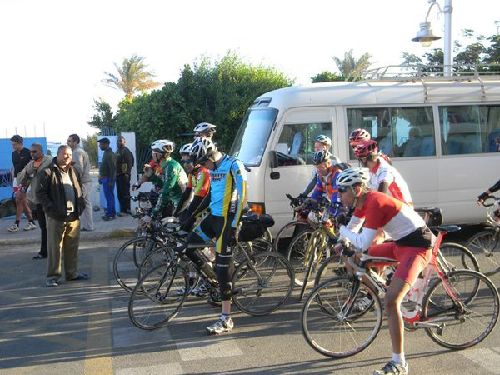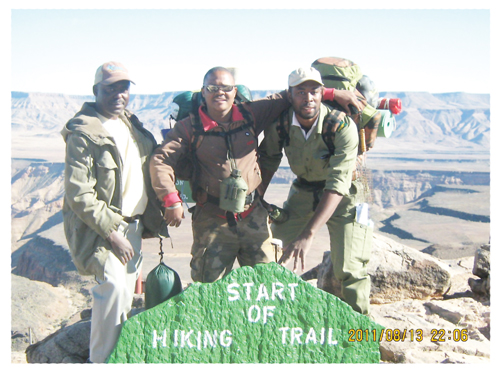
Tour d’Afrique to land in Namibia
 Riders from all over the world are expected to land in Namibia on 27 April. The spectacular annual bicycle event which is celebrating its 10th birthday this year will finish four months later in Cape Town, South Africa after it started in Cairo on a 12 000km journey across the African continent.
Riders from all over the world are expected to land in Namibia on 27 April. The spectacular annual bicycle event which is celebrating its 10th birthday this year will finish four months later in Cape Town, South Africa after it started in Cairo on a 12 000km journey across the African continent.
“It is hard to believe that the 10th Tour d’Afrique is about to start,” says company founder and environmental activist, Henry Gold. “It feels like only yesterday that I was reading e-mails telling me that it could not be done, that I am a charlatan, that it is a publicity stunt that will never be attempted. But here we are at the start of one of the most remarkable annual adventures in the world. I want to simply wish all of the current participants a wonderful trip and may you enjoy this journey the way I enjoyed it when I cycled through Africa.”
“Crazy, doomed, hopeless, wonderful – my first thoughts when I read about the very first Tour d’Afrique. It really is the Mt Everest of cycling. I didn’t realise that a few years later I’d join in the crazy caper. My only regret from my ride? That I couldn’t just keep going,” says Lonely Planet co-founder, Tony Wheeler.
The journey takes 120 days of which 95 are cycling days, averaging 125 km each day, and 25 are rest days. Support trucks transport the gear and equipment, and an experienced crew sets up camp each night and prepares four meals a day.
On their journey through 10 African countries – Egypt, Sudan, Ethiopia, Kenya, Tanzania, Malawi, Zambia, Botswana, Namibia and South Africa − the riders travel past ancient temples, through game reserves teeming with wildlife, across deserts and the foothills of legendary Mount Kilimanjaro, alongside the rugged and biblical landscape of Ethiopia’s Simian Mountains and through Botswana and Namibia’s most magnificent wilderness areas.
One of the main goals of the company is to raise awareness of the damage being done to the environment through society’s increasing use of motorised transportation. Dangerous levels of CO2 in the atmosphere as a result of the use of cars worldwide play large part in the global warming crisis.
“It’s common sense that the world needs to restrain the growth and use of car transportation.” said Gold. “By proving that it’s possible for ordinary people to cross an entire continent by bicycle, we hope to inspire more people to use bikes instead of cars in their daily lives.”
Whether participating as a racer or adventure cyclist, the Tour d’Afrique challenges riders physically and mentally like no other – with rewards of unsurpassed terrain and diversity and an incomparable feeling of accomplishment that few have the opportunity to experience in a lifetime.









































